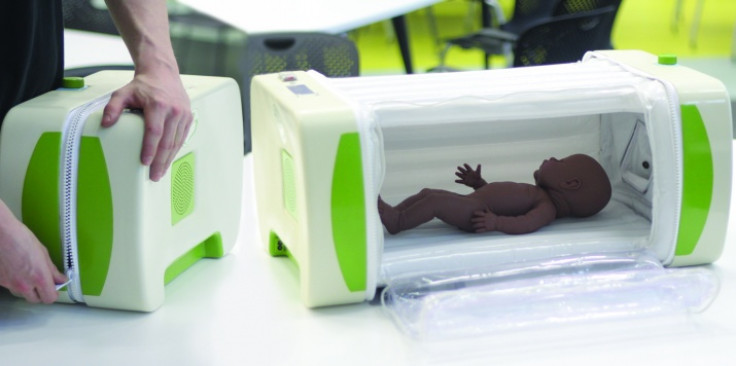James Dyson Award 2014: Inflatable Incubator Wins Prestigious Prize

A low-cost, inflatable incubator that could help cut infant mortality rates in the developing world has been chosen as the winner of the annual James Dyson Award.
The MOM incubator - designed by recent Loughborough University graduate James Roberts - is easy to transport, can operate without mains power and provides the same performance of a £30,000 incubation system at a cost of just £250.
The inspiration behind the design came when Roberts was watching a report on a Syrian refugee camp.
"The programme was showing how loads of premature kids were dying in these refugee camps due to the stresses of war and due to a lack of incubation," Roberts told IBTimes UK. "I thought there had to be a way to solve that and so I just threw myself in at the deep end and just went for it."
After four months of research, Roberts visited neo-natal experts, midwives and hospitals to understand how best to develop a design.
The MOM incubator was selected from hundreds of entries from 18 countries around the world by industrial designer and inventor Sir James Dyson.
"James' invention shows the impact design engineering can have on people's lives," Dyson said. "The Western world takes incubators for granted – we don't think about how their inefficient design makes them unusable in developing countries and disaster zones.
"By bravely challenging convention, James has created something that could save thousands of lives."
The £30,00 prize money for winning the James Dyson Award will be used to further develop the prototype with the hope of bringing the MOM to market in the developing world within two years.
"I'd like to get it out in developing countries first because their testing is a bit less stringent," Roberts said. "It's more about what's best for the child, not all this red tape.
"So if I can try and get some units out there, I'll get them tested and make sure they work and then go from there."
© Copyright IBTimes 2024. All rights reserved.







